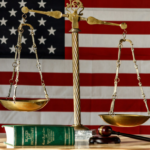A student loan servicer has filed a lawsuit in federal court seeking to help resolve a conflict between the Department of Education and the state of Connecticut.
The servicer, The Pennsylvania Higher Education Assistance Agency, needs a license from the Connecticut Department of Banking in order to service and collect on student loans from individuals in the Nutmeg State. The PHEAA submitted all of the necessary paperwork, except for one document, to obtain the license. The regulator has threatened to suspend the company’s license if the document, which related to the federal Direct Loan Program, is not submitted. The PHEAA is arguing that the document is protected by federal privacy law and the Department of Education denied a petition from the PHEAA to release the document. Given the standoff between the state regulator and the Department of Education, the servicer filed a lawsuit with the U.S. District Court for the District of Columbia to help resolve the issue.
The issue illustrates the growing tension between states and the federal government over who has the authority to regulate student loan servicers. Servicers have been lobbying the federal government to grant them pre-emption from having to follow state laws, while states have been incredibly reluctant to relinquish their power to supervise and enforce state laws.
The Department of Education has issued guidance requesting state regulators ease up their oversight over servicers that are collecting on federal student loans, saying that only the federal government has the power to regulate those companies.
Betsy DeVos, the Secretary of Education “is choosing to obstruct state law enforcement officials by refusing to allow PHEAA to turn over important information to state law enforcement,” said Christopher Peterson, a law professor at the University of Utah and former enforcement attorney at the Consumer Financial Protection Bureau, to the Washington Post. “The Trump administration is siding with the student loan debt collection industry over teachers, cops and veterans that just want fair treatment in student loan repayment programs.”









